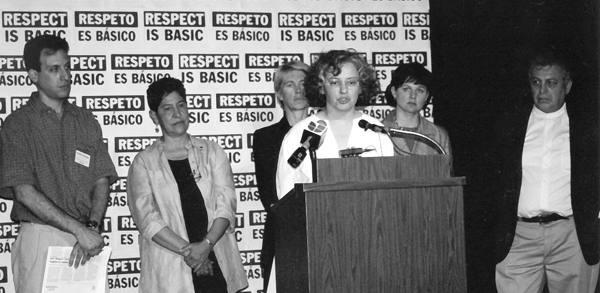Defunding of the Esperanza Lawsuit
In 1997, City of San Antonio funding for the Esperanza and two of its sponsored organizations, the San Antonio Lesbian & Gay Media Project and VÁN, was eliminated after a series of public and private attacks. In 1998, the three organizations filed suit in federal court against the City of San Antonio, alleging violation of the First and Fourteenth Amendments to the United States Constitution and of the Texas Open Meetings Act.
In August, 2000, a trial was held before Judge Orlando García. This trial was limited to whether the City had violated the Esperanza’s rights; a further trial on remedies would be held only if the City was found liable. In an 85-page decision issued on May 15, 2001, Judge García found that the City had violated the Esperanza’s rights in all of the ways alleged in the original complaint. Judge García then asked the parties to agree on the appropriate remedies for these violations. The Esperanza negotiating team went through months of negotiation, with two separate mediators. Finally, the City agreed to monetary damages, a consent decree requiring the City to respect the rights of applicants for arts and cultural funding and requiring the City to establish criteria and procedures in advance of when the applications are due, and attorneys’ fees.
The Esperanza case is the first case in the United States addressing issues of race and ethnicity in public arts funding. Central to the defunding of the Esperanza was the City’s lack of support for cultural expression in Latino and Black communities and its pervasive promotion of white, European-derived cultural norms and practices. It is the first case asserting a right of cultural integrity for minority communities within U.S. law. The case challenges the United States’ long-standing resistance to recognition of cultural rights and establishes a foothold for further work to strengthen the cultural rights of indigenous and minority communities.

